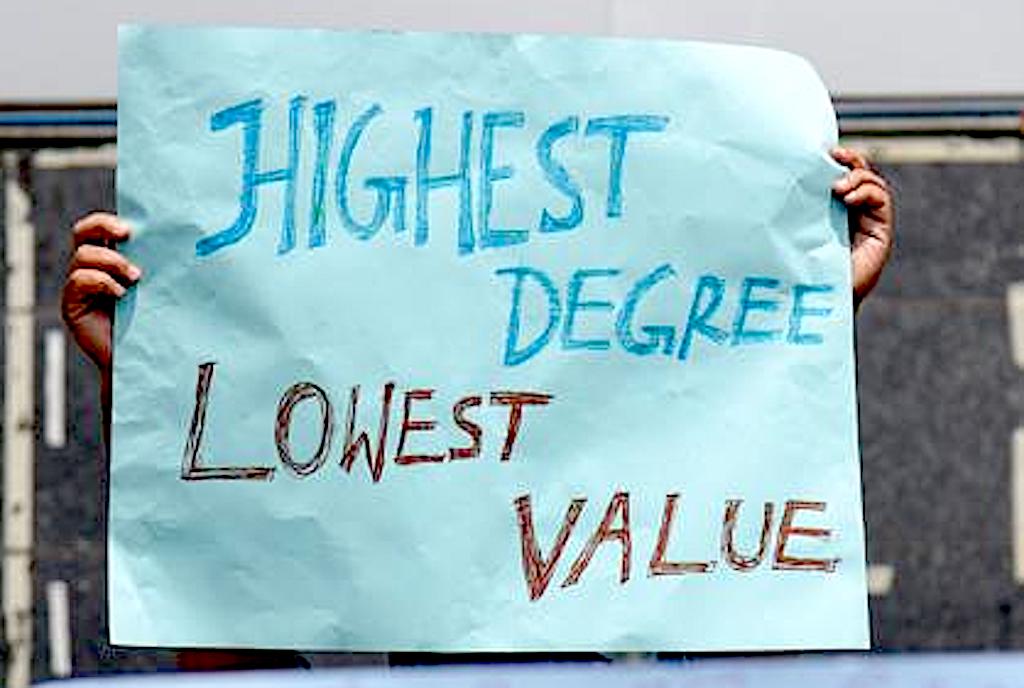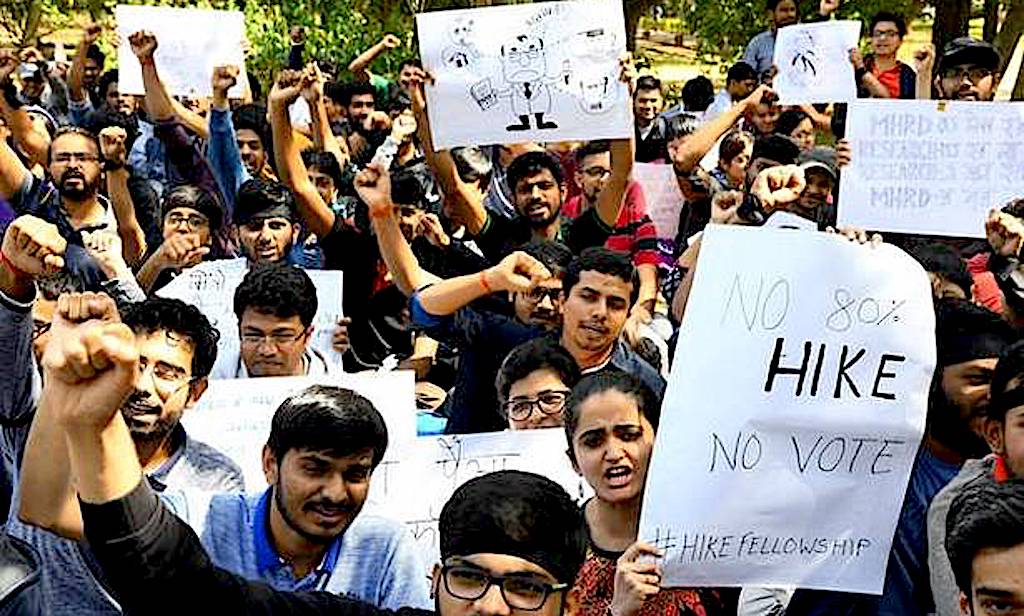Nadwi Salman for BeyondHeadlines
The Fellowship is a system to support young scientists and scholars from different disciplines in higher education. It helps poor and meritorious students to attain higher education without any financial barriers. The big question in the case of India is the unemployment among the youth including doctorate degree holders. In this article, I will focus on the issues of fellowship, provisions of University Grant Commission and unemployment in the country, especially among youth.
Today seventeen types of scholarship are given to research scholars in different fields by the UGC. And those are: Dr. S Radhakrishnan Postdoctoral Fellowship in Humanities & Social Science, National Fellowship for students of Other Backward Classes (OBC), Kothari Fellowship, NET-JRF Fellowship, Indira Gandhi Scholarship Scheme for Single Girl Child, Maulana Azad National Fellowship-Minority, Rajiv Gandhi National Fellowship for SC, Ishan Uday-Special Scholarship Scheme for North Eastern Region, Swami Vivekananda Single Girl Child Scholarship for Research in Social Sciences, Emeritus Fellowship, Post Doctoral Fellowship to Women Candidates, PG Scholarship for University Rank holders, Post Doctoral Fellowship for SC & ST, PG Scholarship for Professional courses for SC/ST, BSR Fellowships in Sciences, UGC-BSR Faculty Fellowship Scheme, PG Scholarship for M.E./M.Tech./M.Pharma for GATE/GPAT qualified candidates.

After mentioning all these fellowship schemes, it is better to analyse here the Non-NET fellowship. In 2006, UGC started this scheme for M Phil and PhD scholars. Today, around 35 thousand research scholars from 49 Central Universities are getting the Non-Net fellowship. The amount provided for MPhil is 5000 and for PhD, it is 8000. In 2016, UGC announced the closure of this scheme, while thousand of research scholars including JNUSU had demanded to increase the amount from 5 thousand to 8 and 8 to 12 thousand for MPhil and PhD respectively. Despite this demand, the UGC announced the closure of this scheme and the matter of raising money for the Non-Net scheme went to a cold bay. To continue this scheme thousands of students across the country joined with JNUSU’s protest in-front of UGC. They spent three months on Bahadur Shah Zafar Marg. They tolerated lathi charge by Delhi police. Students across the universities did not lose the hope until UGC has given assurance to continue with the fellowship. This struggle was a very memorable movement for economically poor students.
It would be more appropriate to say that M Phil/ PhD scholars from central universities can get the Non-Net fellowship, while students from Central and State Universities can also benefit from remaining 17 fellowships on merit basis. But there are a couple of bigger questions related to the discriminatory approach for providing fellowship to the research scholars among central and states universities. Although both have similarity on the various grounds, research scholars from state universities are deprived to get the Non-Net fellowship. Why is this discriminatory approach still working? Why is UGC not able to analyse or reflect upon this approach?
After discussing Non-Net and other fellowship schemes, I would like to mention some facts about unemployment in India. According to CMIE, the unemployment rate in India rose to 7.2% in February 2019. The most affected groups are the young degree holder citizen of the country and the political parties are doing mockery in political rallies and their speeches. A report published in several newspapers last year states that 3700 PhD degree holders applied for the post of peon in UP while the eligibility criteria for the post was 8th standard.
All these reports raise many questions on our policy-makers, political leaders and bureaucrats. Unemployment is a noticeable issue in itself. If highly educated, especially PhD holders suffer from unemployment, our system will be a bad example around the world. In this condition, our policy-makers should think more about the unemployment of PhD holders and the amount that they were getting as a fellowship during research.
The scholars are not getting any job after completing the research and the government is not able to use many scholarships funds. Even UGC and HRD are returning many funds to the government. To avoid defamation in all word, our system should provide any kind of job to PhD holders after completing their research works. The grave situation of the unemployment could be understood through a young scholar’s statement, who recently conveyed me, “the HRD should decrease some thousand rupees in all fellowship scheme and provide job after completing research work.” This signifies that young scholars are ready to scarify a small amount of fellowship on the hope to get a job although state has all the capacity to generate job for the young generation. The upcoming Lok Sabha election is an option where citizens can convey their grievances to the political parties.






















